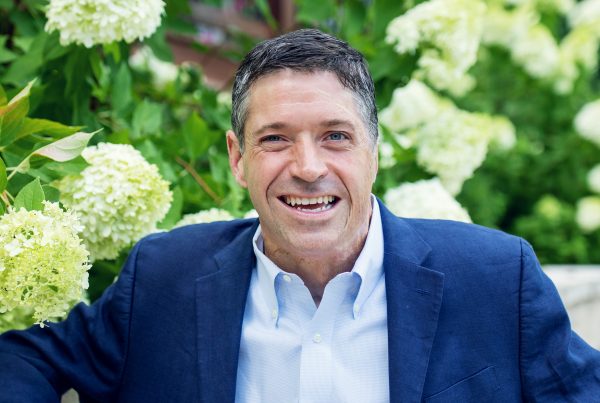City Council to get a raise?
Few local government issues can get more emotional than salaries of local government officials. Tonight, Boca Raton will begin deciding whether to ask taxpayers to give the mayor and council members a big raise.
Currently, the mayor’s position pays $9,000 a year. Council members get $7,200. There’s also a small car allowance. Those officials set policy for a city of 90,000 residents. Technically, they are part-timers, paid to attend three meetings roughly every two weeks.
Doing the job thoroughly, however, means reading all the backup material for each meeting. It means taking calls from constituents. It means meeting with the city manager and city attorney, who report to the mayor and council. It means attending meetings of other agencies. It means attending public events. There’s enough work to make it a 40-hour-per week job. At least.
At the request of Mike Mullaugh, the council tonight will consider whether to introduce an ordinance that would allow for a referendum in November 2016 on raising mayor and council salaries. Mullaugh is the ideal person to raise the issue, because he wouldn’t benefit from it.
If the referendum were held, and if the voters approved, the mayor’s salary would increase to $41,181. Council members would make $29,967. Why those figures? The first is what the Florida Senate president and Florida House speaker are paid. The second is what state senators and representatives make.
Like the mayor and council members, legislators are considered part-time employees. Realistically, they are much more. In addition to the 60-day regular session, there are committee meetings once a month. There are calls from constituents. There are meetings with the public. Legislators are part-time in name only.
Mullaugh brought up the idea because a speaker at one recent meeting said the council should be paid more. The raises would not take effect until April 1, 2017, just as Mullaugh is term-limited. Putting it on the presidential election ballot also would ensure a large turnout and thus a good sense of public sentiment, assuming voters get down the ballot that far.
Correctly, the charter change would make salaries less of a political issue by fixing them to what state legislators make. If Tallahassee salaries rise, so would those in Boca. Salaries for county commissioners are tied to the population of the county.
Proportionally, the raises would be huge—about 350 percent for the mayor and roughly 300 percent for the council members. The budget hit, however, would be only about $125,000. I hope this issue gets on the ballot. Higher salaries won’t necessarily attract better candidates; the opposite might happen. But the pay for those whose set policy in the county’s second-largest city is absurdly low.
Via Mizner design a hit, parking an issue
Almost every member of Boca Raton’s planning and zoning board last week praised the design for Phases 2 and 3 of Via Mizner. One called it “a little bit of Santa Barbara (California) and Mizner.”
Then they began talking about parking. There was less praise.
The project would add a 164-room Mandarin Oriental (Phase 2) and a 104-unit condo (Phase 3) to the 366-unit apartment building at Camino Real and South Federal Highway, backing up to the golf course of the Boca Raton Resort & Club. Representatives of the developer, Penn Florida, did a good job explaining how cars would move within the project and on Federal Highway. The questions centered on what would happen when cars stopped moving.
The project relies on shared parking among garages at all three buildings. The plan envisions no valet parking for the hotel. The plan envisions no designated parking for the condo units. Some board members were skeptical that guests at a luxury hotel—rates start at $400 per night for the Mandarin Oriental in Miami—would be willing to park their own cars. They were skeptical that owners of what surely will be luxury condos—with hotel privileges—would accept potentially having to park on another floor, much less in a different building.
Without those shaky assumptions, board member Larry Cellon said, the shared parking plan “falls apart.”
As Development Services Director Ty Harris explained, however, the staff only can review the plan as presented. Based on the application, the parking meets city regulations. The questions, though, are legitimate.
A Penn Florida representative said the company reached an agreement with Mandarin Oriental just two weeks ago and is having an “ongoing conversation” with the hotelier about development details. The 164-room total is low for a Mandarin Oriental; the one in Miami has 326 rooms. Penn Florida officials acknowledged that their investors raised the same issue. Apparently, the hotel would be less designed to attract conferences—and thus would be less likely to compete with the resort. The hotel would host small weddings, not lavish one. The room rate could be higher than usual, to make the numbers work.
But the costlier the hotel, the more likely guests would be to demand valet parking. Penn Florida said signs in the garages would tell people where to park. If drivers ignored the signs, however, city code enforcement officials would have to enforce the rules. That could be a big problem.
By a vote of just 4-3, the board recommended that the city council approve the project. Cellon, Kerry Koen and Janice Rustin voted no. They worry that the developer will ask for parking changes after construction, not before. That would amount to what Harris called “asking for forgiveness, not permission.”
Having to deal with that shared parking issue could mean a smaller hotel, a smaller condo, or both. Perhaps the restaurant space would have to be smaller. This issue surely will arise when the project goes before the council. That “ongoing conversation” will need to include the city.
University Village
Also on tonight’s Boca Raton City Council agenda is the second of two hearings on University Village, the 77-acre mixed-use project proposed for north of Spanish River Boulevard and Florida Atlantic University. The site is the largest undeveloped property in the city.
University Village, which would be a Planned Mobility Development, generated little debate at the first hearing. There will be more tonight, focusing on how much Penn Florida wants to build—829 residential units, a hotel, retail/office space—and how much traffic that development would generate. The developer will tout potential tax revenue, but also another angle.
“Boca presents badly to Interstate 95,” said Charlie Siemon, the lawyer who represents Penn Florida. University Village would offer something more attractive, near the new I-95 interchange. Siemon said the “urban feel” would be new to Boca. To get that, you have to check out Delray. University Village, Siemon said, would be “better than Delray.” When is the last time you heard that argument for a project in Boca?
That Syrian question
Congratulations to this area’s members of Congress—Ted Deutch, Lois Frankel and Alcee Hastings—for not pandering to fear after the terrorist attacks in Paris.
All three Democrats last week voted against legislation that would toughen the process under which the United States allows Syrian refugees to enter the country. Forty-seven Democrats joined with almost all Republicans to support the measure. The Senate has not acted. President Obama has threatened to veto the bill.
As The New York Times reported, Syrians applying for refugee status must go through a 20-step process that takes at least two years. Applicants can’t even come here until they successfully complete the process. They must pass background checks by the departments of State and Homeland Security. The House bill, among other things, would add an FBI background check. The FBI is a domestic law enforcement agency. The refugees would be coming from abroad.
The easy vote would have been the pandering vote. The easy vote, though, is often not the right vote. Credit Deutch, Frankel and Hastings for helping the fight against Islamic terrorism by holding to American values.








